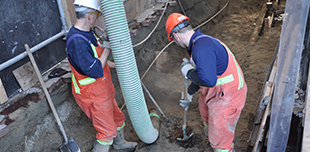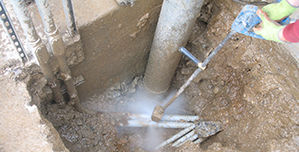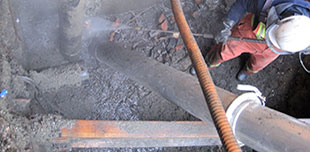The wastewater and sewage that leaves your home is going to go through the main sewage line. All of the wastewater will go through this line, from the water in the toilet to the water that goes through the washing machine. This is one of the main veins of your home’s system, and that’s why it is very important to make sure that the line is free of clogs and debris. If there were a clog in the sewer line, it would not take very long at all before the sewage started to back up into your home, and no one wants to contemplate that situation.
Sewer Line Flushing for Your Home
Sewer line flushing can make sure that you do not have to go through this type of problem. The flushing of sewer lines will make sure that you do not have any clogs or debris. The powerful jets of water can remove the debris so that everything flows through your sewer line. You should contact the professionals who can take care of this type of problem at the first hint of trouble. In fact, you may want to have an inspection, even if you haven’t noticed any major problems yet. The inspection can ensure that you do not have any nasty surprises waiting for you in your home’s sewer line.
Sewer Line Flushing for the Business
Of course, residential homes are not the only ones that could have trouble with their sewer lines. Businesses may well have a sewer line in need of flushing, as well. If you have a backed up sewer line at work, chances are you will have to close your business until you remedy the situation. This means that you are going to want to have an inspection and receive sewer line flushing to remove any blockages that could be causing an issue with your plumbing.
Do Not Wait
As you can imagine, this is a situation that you want to deal with immediately. The longer you wait, the worse it can become, and that means that repair costs and fixing the damage that it could cause to your home or business would be greater. With the high-powered flushing services for sewer lines available today, the professionals can clean the tank faster and more efficiently than in the past. Do not make the mistake of waiting too long before you have your main sewer line flushed.









